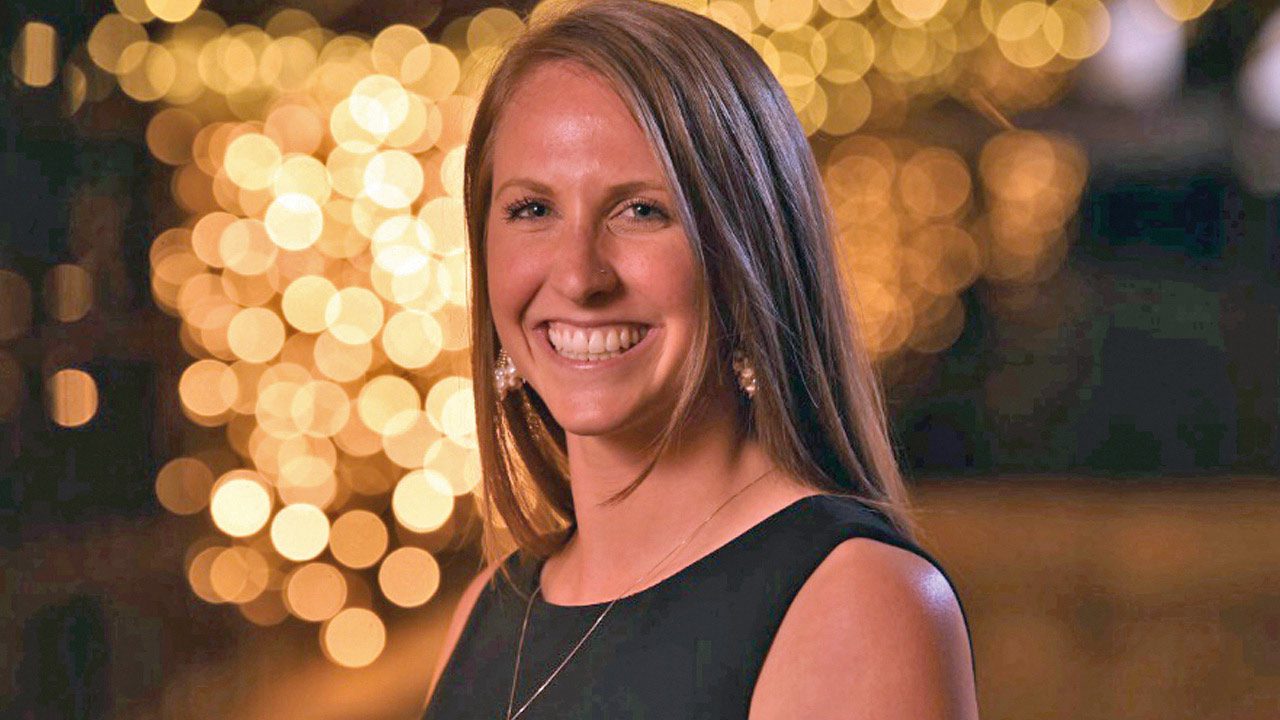of the university
Up Close: The Perfumer

Every shampoo bottle she read as a child had the word in its ingredient list: Parfum.
And as she inhaled, MacKenzie Cuthbert thought, “Someone’s got to make this.”
Today, she’s that someone.
Cuthbert ’14 is a perfumer for Firmenich, a position held by only 90 of the company’s 10,000 employees. She lives in Geneva, Switzerland, where Firmenich is headquartered, and spends her days using both her nose and her Furman chemistry degree.
Cuthbert has always been obsessed with scent.
“I would go into Bath & Body Works and smell everything,” she says. “I loved doing laundry as a kid because of the smells.”
Once she learned that being a perfumer was an actual career option, she never looked back. Her dad suggested chemistry as a starting point, and she liked what she heard about Furman’s science programs.
Chemistry Professor Brian Goess introduced her to a colleague in the flavor industry, a close cousin of fragrance.
“Students who have an interest are going to find someone on our faculty who knows someone in industry,” Goess says.
One name led to another. Some of the conversations were dead ends. But Cuthbert had a stock answer: “‘OK, great. Thanks for talking to me.’ Then I would call the next person.”
It worked. By fall of 2014, Cuthbert had a temporary position in the applications lab at Firmenich’s New Jersey office. Six months later she was a perfumer’s assistant, compounding oils from formulae sent to her by a master perfumer.
“I took every opportunity to smell and ask questions,” Cuthbert says.
She also passed a test that every would-be perfumer must take – “they need to make sure your nose works” – and ultimately was chosen for the four-year training to become a perfumer.
The world’s largest fragrance houses have two primary tracks: fine fragrance and consumer fragrance. The latter includes everything from laundry detergent to candles to deodorant.
Cuthbert’s first year of training was spent memorizing roughly 1,000 smells. Then she began learning how to develop a scent for a specific application. She was nominated as a full-fledged perfumer in November 2020.
It’s no surprise Cuthbert considers smell the most important of the human senses.
“There’s an emotional attachment to it,” she says. But she also understands scent as an escape. During a research trip to India, she was overwhelmed by the unpleasant smells a large city produces. She was motivated to develop a laundry fragrance that would provide relief.
Cuthbert works primarily with European clients but is also involved in global projects in countries including Colombia, Argentina and Singapore.
“Every country has their own types of smells, just like food,” she says.
Personally, she leans toward “woody and creamy” scents, with touches of white floral.
In the spring of this year, she was looking forward to a trip to France to smell a mimosa tree in full bloom, a scent she hadn’t experienced yet outside of a lab.
She loves the challenge of home care perfumes. Her formulae “have to create a fragrance that covers the base, which usually smells terrible.”
But a perfumer also works within restraints, including safety regulations and price restrictions.
“We’re not just a nose, we’re also a brain,” Cuthbert says. “There’s thought that goes behind every formula.”